Contemplating Aristotle on Contemplation
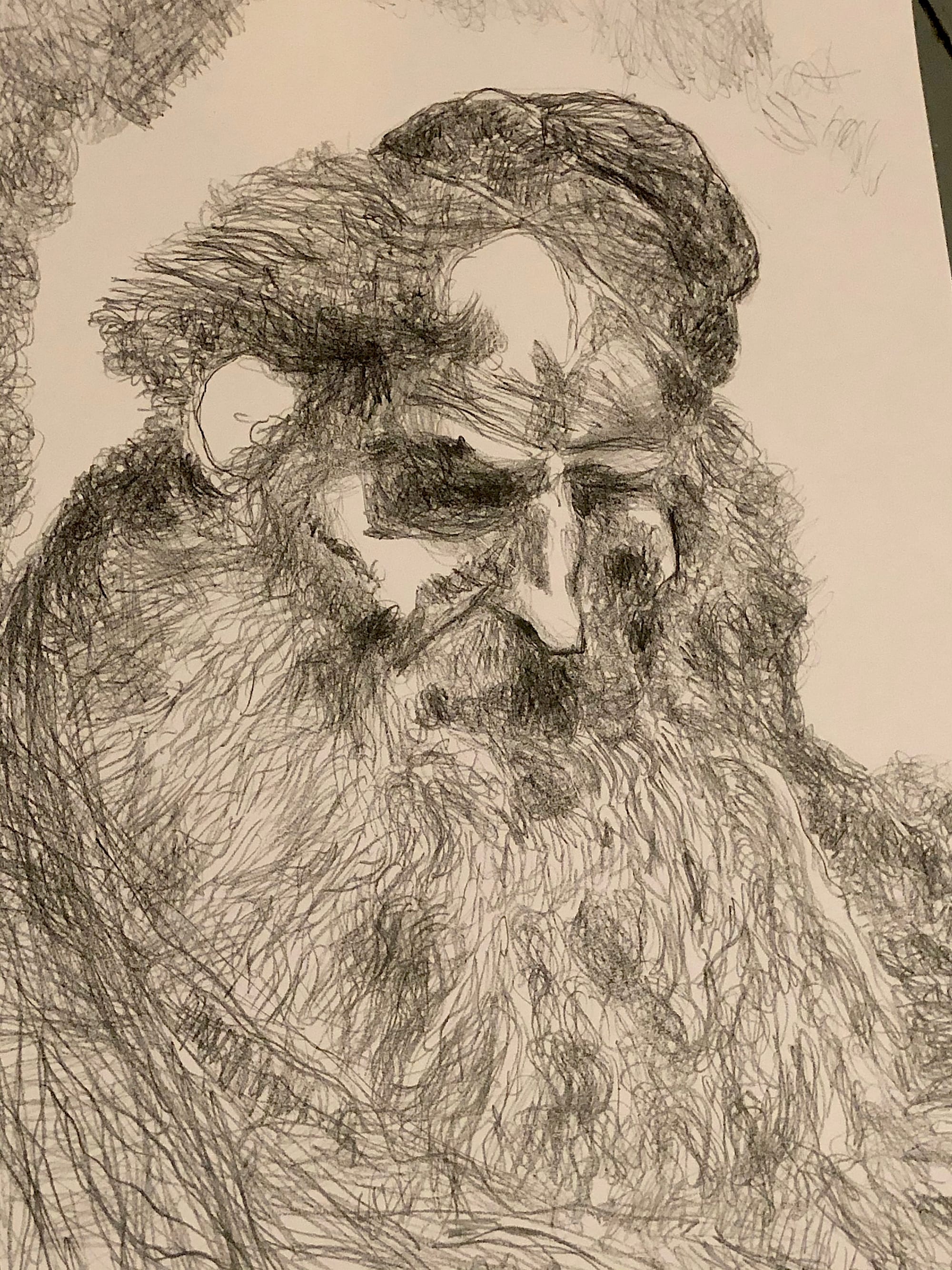
Interview by Richard Marshall
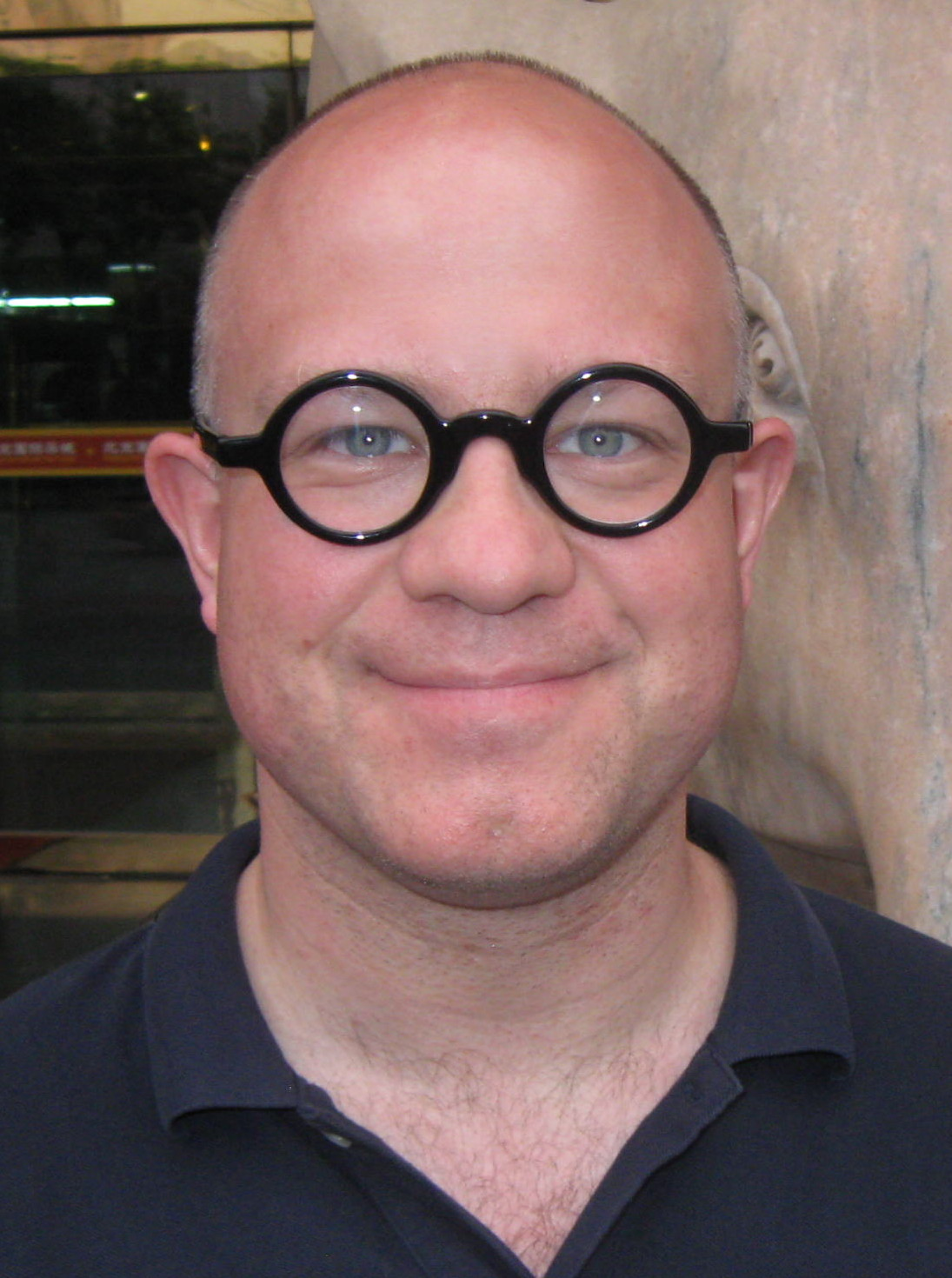
'Aristotle thinks that human beings have an ultimate end or highest good, happiness ( eudamonia ). And he thinks that, to grasp happiness’s content, we should consider activities that are such as to be chosen for themselves and not for the sake of particular higher ends. Philosophical contemplation, Aristotle thinks, is the activity that most of all has this end-like character, at least when compared with other activities.'
'The key aim of my work is to reconcile Aristotle’s views on contemplation and its goodness with Aristotle’s commitment to the “nature does nothing in vain” principle. In other words, my key aim is to square Aristotle’s ethics with his biology. But Aristotle’s theology partly informs his views on contemplation’s value. So, by extension, I’m also concerned to square Aristotle’s ethics and biology with his theology. As I read Aristotle, he is a naturalist, proximately speaking. We can, for instance, understand why living organisms possess the parts and capacities that they do by reference to the ways of life that those organisms lead, and by understanding how those parts and capacities enable those organisms actively to maintain themselves in those ways of life. Further, we can understand benefit in naturalistic terms by reference to what enables an organism fully to exercise, and stay active in, its characteristic way of life.'
'The charge of over-demandingness is important, and it arises in two ways. First, Aristotle thinks that virtue as excellence ( aretê ) requires philosophical understanding. That view about what virtue requires might seem overly demanding. Second, attaining such understanding requires what perhaps seems a forbiddingly arduous kind of philosophical activity. So, that view about what contemplation requires may also seem overly demanding.'
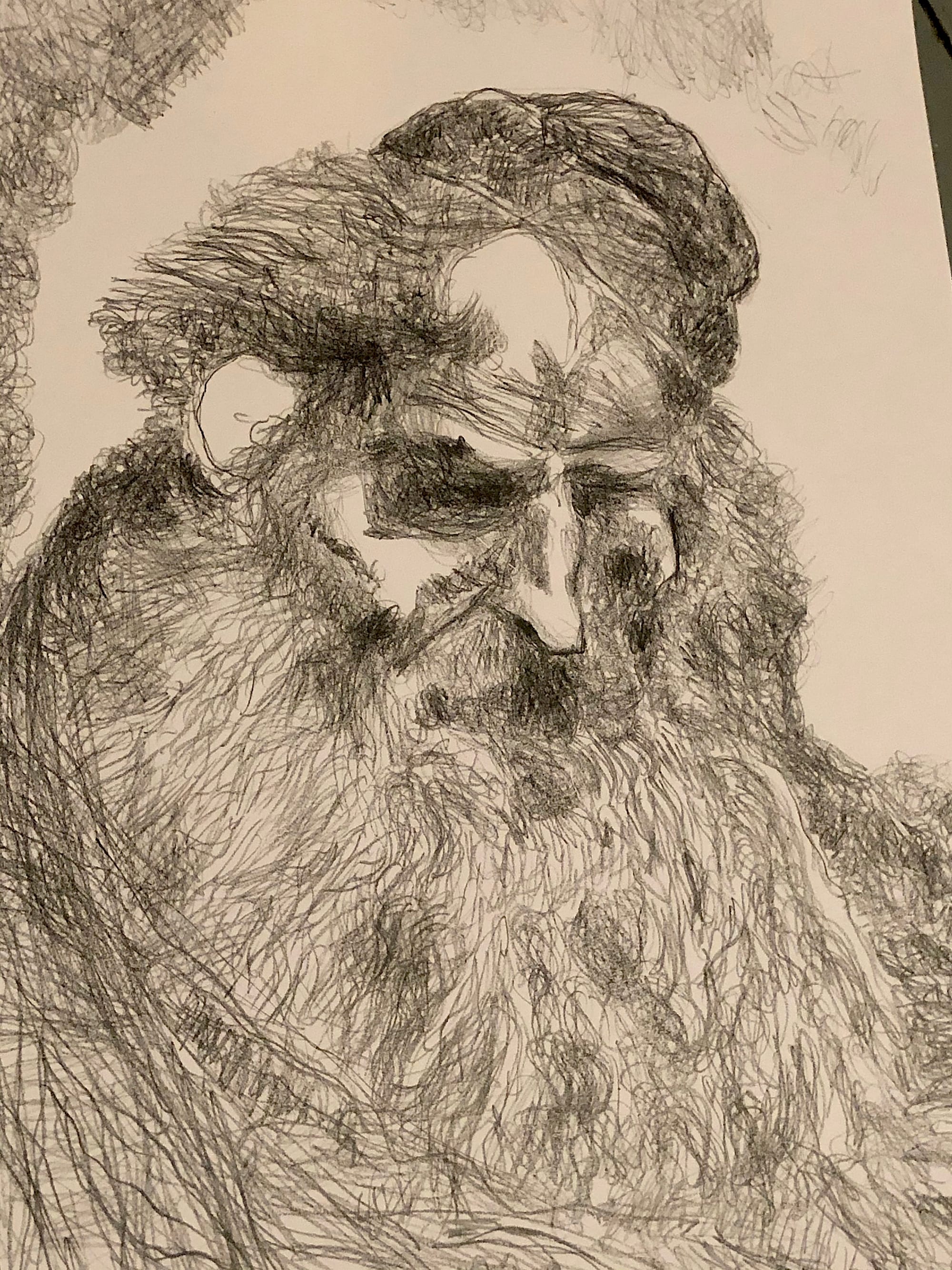
Matthew D. Walker's primary areas of research and teaching include ancient Greek philosophy and comparative ethics. Here he discusses the usefulness of contemplation in Aristotle, how theism mixes with his naturalistic endeavours, how contemplation relates to happiness, the role of the 'threptic' (of or relating to the feeding or rearing of offspring), the role of perception, why theôria guides phronēsis, how the threptic guides lower life-functions, the 'understanding commitment' and ethics, how contemplation of the divine yields understanding of the human good, how this connects to Plato, whether Aristotlelian contemplation is too demanding, whether the theological commitments undermines any contemporary relevance in Aristotle's contemplation, why Aristotle didn't write about immortality and hylomorphism.
3:16: strong What made you become a philosopher?
Matthew D. Walker: My interests in philosophy emerged, I think, from the confluence of ordinary human curiosity and the peculiar circumstances of my life. As an only child of vintage clothing and collectibles dealers who often traveled, I spent a lot of time at flea markets, either alone or talking with adults who pursued somewhat unconventional paths. Throughout my childhood and adolescence, I was interested in special effects, regional independent film and documentaries, and, eventually, avant-garde and experimental film. As I grew older, I moved to an academically intense high school, where my interests headed in different directions. I also found myself increasingly fascinated, as many adolescents are, with political and religious questions, which seemed inescapable and which, the more one pressed them, proved to be philosophical. As it turned out, my high school employed a very gifted teacher who had a Ph.D. in philosophy. He offered advanced students an introductory philosophy elective, which I took and loved. Philosophy was at once academically demanding, but, by its nature, unconventional. I see at least two ways to be a philosopher. One might be a philosopher dispositionally, as it were, by leading a certain way of life informed by, and infused with, philosophical reflection. Or, one might be a philosopher professionally, as a member of the academic philosophy industry. These two ways can overlap. But they need not. The first way of being a philosopher came naturally to me.
The second way, however, I resisted for years. Although I majored in philosophy as an undergraduate and thought to pursue a Ph.D. straight away, I felt, as graduation loomed, that I’d become disconnected from some of my earlier interests and sources of inspiration. I’d also learned more about the wretched employment prospects that confronted would-be academics. So, I pursued a first career in commercial book publishing, a field adjacent to film and other media, on the one hand, and academe, on the other. Working as an acquisitions editor seemed like salutary discipline, a good way to get some professional experience and learn practical skills while I decided what path I should take. I felt as if I’d won the lottery by landing the editorial job that I had, and that kept me in it for longer than I’d originally planned. Yet, ultimately, I spent most of my free time reading and thinking about philosophy, particularly metaphilosophical questions. Lacking other resources for addressing the puzzles that gripped me, I grew increasingly desperate to go back to school and unclutter my thinking. After seven years in publishing, I entered Yale’s Ph.D. program, which I pursued with a lot of energy and purpose. I subsequently experienced first-hand that the employment prospects for aspiring academics are, indeed, wretched; but some good fortune enabled me to keep at it. Since then, I’ve continued to pursue professionalized academic philosophy, off-label, perhaps, as a way of being a philosopher in the dispositional sense that first attracted me.
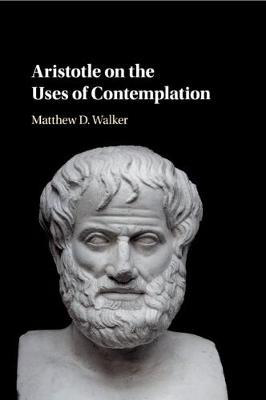
3:16: You’re an expert in ancient Greek philosophy and have addressed the utility question in Aristotle which is how useless contemplation be central to the human good. So can you start by outlining for us what this issue is in Aristotle?
MDW: Aristotle thinks that human beings have an ultimate end or highest good, happiness ( eudamonia ). And he thinks that, to grasp happiness’s content, we should consider activities that are such as to be chosen for themselves and not for the sake of particular higher ends. Philosophical contemplation, Aristotle thinks, is the activity that most of all has this end-like character, at least when compared with other activities. Such contemplation, paradigmatically, consists in the systematic understanding of the cosmos by reference to the cosmos’s first principles and final causes. So construed, contemplation – the exercise of our contemplative intellect according to the intellectual virtue of sophia (contemplative wisdom) – is not concerned with practical affairs, human goods, sources of advantage, and the like. Such objects are the proper concern, instead, of the practical intellect, which we can exercise according to its own proper intellectual virtue, phronêsis (practical wisdom). Since contemplation is choiceworthy for its own sake and not for the sake of particular higher ends, and since contemplation doesn’t concern itself with practical affairs, Aristotle thinks that contemplation is, in some sense, useless. Some commentators think that, for Aristotle, contemplation is the exclusive component of happiness.
But I don’t. Instead, I think that contemplation, as what Aristotle calls “complete happiness,” is just the happiest part of our happiness, which itself remains a complex whole with other components. The uncontroversial point, however, is that, for Aristotle, contemplation is central to the human good. Meanwhile, in his biological works, Aristotle adopts a general principle for biological explanations: nature does nothing in vain. This principle implies that living organisms lack useless parts and capacities that contribute nothing to, or that positively impede, their self-maintaining life-activity. Instead, living organisms possess only useful parts and capacities that beneficially sustain them in their active functioning as the kinds of living beings they are. In short, if contemplation is useless, then, per the “nature does nothing in vain” principle, our having contemplative capacities seems mysterious. But we do have these capacities. And Aristotle thinks that their exercise constitutes our complete happiness. What I call the utility question, then, amounts to the question, “If nature does nothing in vain, but provides living things only useful parts and capacities, why should human souls be equipped with useless contemplative capacities? And how, after all, can useless contemplation be central to the human good?”
3:16: One of the interesting things about your approach to all this is that you argue that it’s wrong to see Aristotle as not having theistic views that influence his understanding of people’s biological and practical functioning. I thought the received wisdom was that he was a naturalist without Gods interfering with his views?
MDW: The key aim of my work is to reconcile Aristotle’s views on contemplation and its goodness with Aristotle’s commitment to the “nature does nothing in vain” principle. In other words, my key aim is to square Aristotle’s ethics with his biology. But Aristotle’s theology partly informs his views on contemplation’s value. So, by extension, I’m also concerned to square Aristotle’s ethics and biology with his theology. As I read Aristotle, he is a naturalist, proximately speaking. We can, for instance, understand why living organisms possess the parts and capacities that they do by reference to the ways of life that those organisms lead, and by understanding how those parts and capacities enable those organisms actively to maintain themselves in those ways of life. Further, we can understand benefit in naturalistic terms by reference to what enables an organism fully to exercise, and stay active in, its characteristic way of life. At this level of analysis, Aristotle proceeds naturalistically in some robust sense. He considers the ways of life that organisms lead by nature, and he pursues corresponding functional accounts of these organisms’ parts and capacities.
Aristotle’s naturalism, moreover, is pervasive: don’t forget that his biological and ethological treatises constitute nearly 25% of his extant corpus! But Aristotle is also a theist. He argues that there exists a divine and eternal first principle and final cause of the cosmos as a whole: eternally active self-thinking thought, or thinking thinking thinking. This principle – which Aristotle calls a god – is the unmoved source of motion in the cosmos. This god, as eternally active, has the best kind of existence. Accordingly, other living things – intentionally or not – are stirred to motion to strive to be like god. Thus, for Aristotle, we can take a wider, cosmic view and consider, for instance, how a plant’s coordinated phototropism, photosynthesis, rooting, and fruiting make sense as its way of imitating the god’s maximally desirable, eternally active way of being. Aristotle’s god does not intelligently design anything, or perform miracles, or directly intervene in human affairs. So, while Aristotle is a theist, his theology doesn’t portray gods as supernatural beings that willfully contravene the workings of nature. To this extent, Aristotle’s theology coheres with his naturalism.
3:16: So how does contemplation relate to eudaimonia and is theology essential to understanding this correctly?
MDW: As I mentioned earlier, contemplation is the most final (or end-like) kind of activity that we can pursue. Contemplation most of all has the character of happiness, which is an unqualifiedly final end. Thus, contemplation is the happiest activity that we can pursue, at least compared to other activities. But Aristotle connects contemplation and happiness in other ways. Aristotle thinks that the god, as eternally active and maximally self-sufficient, has the happiest kind of life. We mortals attain happiness by approximating this god’s eternal activity – not by trying to be god (as the crow flies, so to speak), but by trying to be fully active as the kinds of living beings we are. Aristotle’s god, however, does what eternally active, maximally self-sufficient paradigm of happiness would do: this god contemplates itself. Like gods, human beings also have a capacity for contemplation, whereas no plants and no other animals have this capacity.
So, for human beings, being happy – and partaking in the divine and immortal within the constraints of our nature – requires us also to exercise our contemplative capacities. Aristotle doesn’t always foreground his theology in his ethics, any more than he always foregrounds his biological views. Yet as John Hare first pointed out to me, forms of “god” and “divine” ( theos , theion ) appear twice as often in the Nicomachean Ethics as eudaimonia does. Further, Aristotle’s defenses of the contemplative life explicitly refer to the divine. Aristotle’s ethics is, to this extent, unavoidably theological. But human beings are also embodied, perishable, living organisms. To account for the value of contemplation fully on Aristotle’s view, we need to take up both Aristotle’s theological and biological perspectives.
3:16: What’s the relevance of Aristotle’s nested hierarchy of life-functions and the ‘threptic’ aspect in particular and do his views connect with Plato and again require a theological reading to make sense?
MDW: For Aristotle, a soul is that principle in virtue of which any embodied living being is living. Thus, not only do human beings have souls, but so do plants and non-rational animals. Different kinds of souls, in turn, are distinguished by the specific powers and life-functions they possess. All mortal beings possess the threptic power, whose life-functions are self-nutrition and reproduction. Whereas plants possess only the threptic power, other living organisms possess more complex souls. Their souls are systems, unified arrangements of different powers and life-functions. Non-rational animals, for instance, have both the threptic and perceptive powers. Like plants, such animals nourish and reproduce themselves. But they also perceive, and, accordingly, desire and move around. Human beings possess all these powers, but we also possess the power of intellect in both its practical and contemplative varieties. (Meanwhile, Aristotle’s god, as imperishable and eternally active, lacks powers per se ; this god is simply the activity of thinking thinking itself.)
For Aristotle, an organism’s highest life-function distinguishes that organism as the kind of thing it is and exemplifies the way of life that organism leads. In this sense, an organism “lives by” its highest, or authoritative, life-function. Thus, whereas non-rational animals “live by” perception, human beings “live by” reason. The powers that constitute complex souls, moreover, are hierarchically ordered. An organism’s lower powers are for the sake of its higher powers, both as instrumental to and as approximating the higher. But again, nature does nothing in vain. So, a soul’s highest powers and life-functions reciprocally conduce to the lower powers’ and life-functions’ attaining their respective ends. Even an organism’s highest powers and functions – as parts of a self-maintaining system – should play some useful role in the organism’s self-maintenance, even if indirectly. The highest life-functions that organisms “live by,” then, not only exemplify those organisms’ ways of life; they also serve as useful means by which those organisms actively maintain their ways of life.
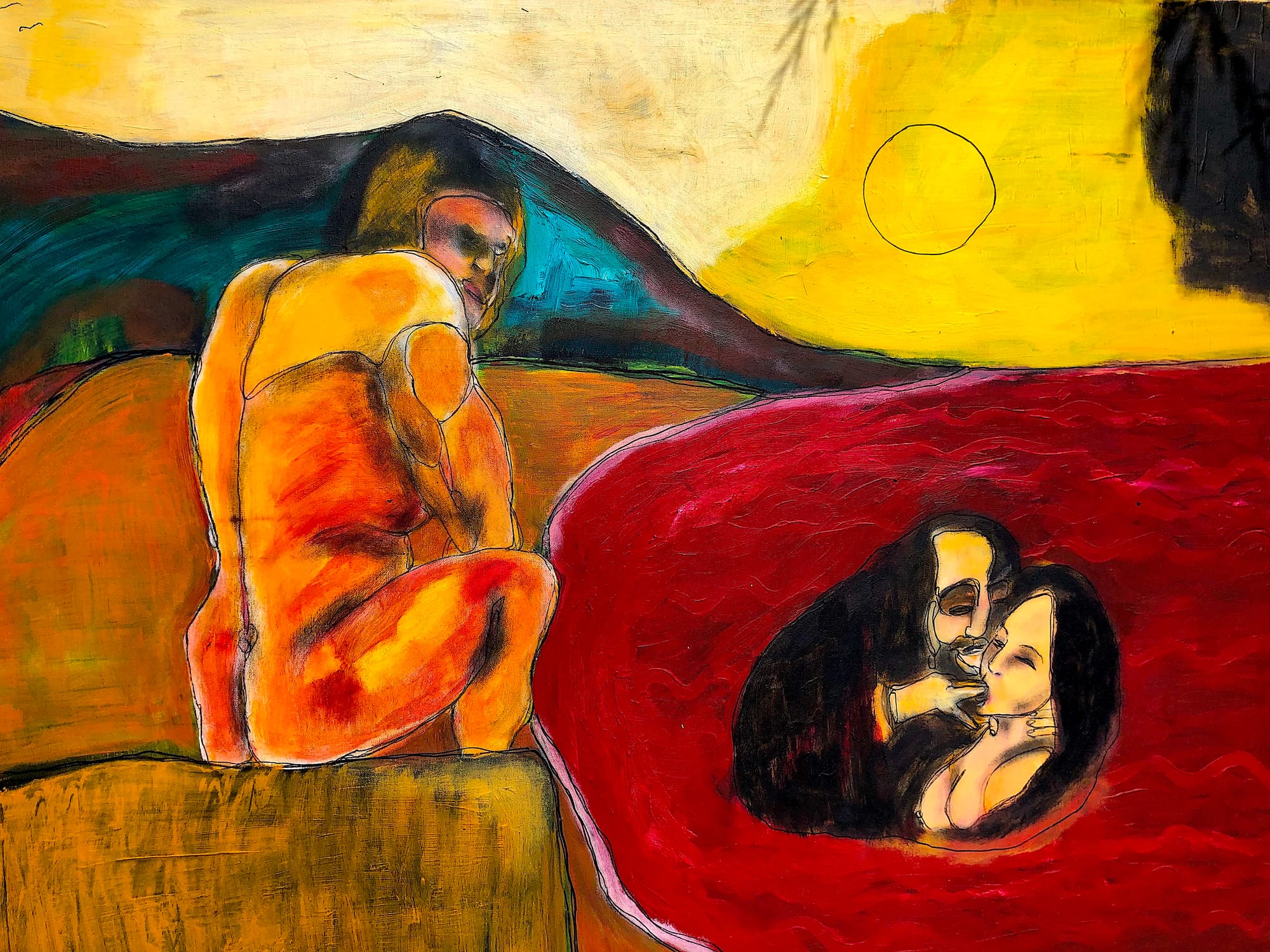
Take, for example, a crocodile soul, which contains the threptic power and the perceptive power. In the crocodile soul, the threptic power is for the sake of the perceptive power. By nourishing itself, the crocodile enables its body to maintain the organs it requires for its perceiving and moving around. The threptic power, by assimilating matter into the organism, also approximates the perceptive power, which can assimilate perceptible forms , such as colors and sounds. But reciprocity also obtains between the perceptive and threptic powers. By crawling around and swimming, by sensing birds and turtles and frogs (and in taking pleasure in chewing them up), and by finding suitable mates, the crocodile fulfills its basic nutritive and reproductive needs. By doing so, the crocodile keeps on keeping on as a crocodile, crawling and swimming, seeking out new prey, searching for mates, and so on.
Aristotle’s picture of the human soul recalls a picture of the soul that appears in some Platonic dialogues. In the Republic , for instance, Plato’s Socrates develops the view that the soul is tripartite: it contains an appetitive part, a spirited part and a rational calculating part. Aristotle identifies three main powers of the soul as well. Hence, Aristotle has a roughly tripartite picture of the soul. From one perspective, the soul’s “parts” (or powers) differ for Aristotle, who talks about threptic, perceptive, and rational elements, instead of appetitive, spirited, and calculating parts. Nevertheless, from another perspective, the Republic’s picture of the soul informs Aristotle’s moral psychology. In writing about the human function or “work,” Aristotle focuses on the rational element of the soul. The intellect counts as part of this element. But so does the human soul’s reason-responsive element, which turns out to contain powers for appetite and spirited desire. Here’s a difference, however, between Plato and Aristotle. Plato’s Socrates doesn’t strongly distinguish between practical and contemplative intellect. Aristotle, however, does, on the basis of their differing respective proper objects. Again, the practical intellect concerns itself with the fluctuating realm of practical affairs. The contemplative intellect, by contrast, concerns itself with the eternal and unchanging. Insofar as the human contemplative intellect’s proper objects are divine and unchanging, Aristotle’s theology again becomes relevant. For Aristotle, the paradigmatic eternal object of contemplative intellect is Aristotle’s god. Thus, in Metaphysics A.2, Aristotle describes contemplative wisdom as a kind of divine wisdom. A god would be the sort of knowing subject apt to possess such wisdom. Yet such wisdom would also be apt to have a god – as the first principle and final cause of the cosmos – as its object.
3:16: What role does perception play in his theory and in particular, if nutrition and perception are reciprocal powers, why hold that the relation of teleological subordination runs from the former to the latter?
MDW: I’ve suggested that, in animal souls, perception constitutes an end for nutrition. In human souls, perception, in turn, is for the sake of reason. Perception is instrumental for the human intellect’s grasp of universals, just as, in human souls, perception (which assimilates perceptible forms in the immediate environment) approximates the human intellect (which assimilates essences and can cognize things that lie beyond the knower’s immediate environment). But before we start thinking about the intellect, we should get clearer about the relation between nutrition and perception. For Aristotle’s picture of hierarchically ordered, but reciprocal, powers of soul is a little puzzling. On the one hand, Aristotle thinks the crocodile’s lower power of nutrition is for the sake of crocodile’s higher power of perception. On the other hand, Aristotle thinks that perception reciprocally benefits nutrition. If so, however, exactly how can the crocodile’s nutritive functions be teleologically ordered for the sake of its perceptive functions? To explain why perception isn’t for the sake of nutrition, Aristotle would appeal to the thought that organisms are differentiated by their highest functions. Suppose, then, that a crocodile’s highest function were nutrition. It would follow that a crocodile is simply a hungry, toothy, scaly plant. But that’s not the case. Why?
Well, Aristotle can say that the highest life-functions within a soul are indeed more authoritative than its other life-functions. An organism that possesses only the threptic power, such as a date palm, will, in the absence of any extra perceptive powers, keep on nourishing and reproducing itself. It won’t perceive. It won’t crawl around. It won’t enjoy the pleasures of swallowing the next crunchy frog. It won’t lust for mates, or have impulses to snap at, and retaliate against, threats. It will just grow and vegetate in its distinctly date palm-y way. Yet when an organism possesses perception, notice what happens to the organism’s threptic power. The perceiving organism’s perceptive powers redirect the organism’s nutritive capacities to fulfill perceptive ends and to subserve a perceptive, animal way of life. Thus coopted by perception, nutrition maintains distinctly sensory and locomotive organs; nutrition also maintains a radically new set of nutritive and reproductive organs. Reciprocity holds between perception and nutrition, but the lower power remains for the sake of the higher. The lower power subserves the higher power, which in turn guides the lower power. Indeed, the higher power’s usefully guiding the lower power is, from another perspective, just what it is for that lower power to subserve the higher power. The lower power is such as to be guided and (re-)directed by something more authoritative.
3:16: Why do you think theôria needs to guide phronēsis?
MDW: On the picture I’ve been sketching, perception in a human soul is for the sake of the intellect. But recall that Aristotle distinguishes the contemplative and practical intellects. In Nicomachean Ethics VI.13, Aristotle holds that, by exercising phronêsis , the practical intellect arranges a human being’s affairs to secure time, leisure, and other resources for contemplation, the human soul’s authoritative life-function. At first blush, it might seem as if the practical intellect subserves the contemplative intellect, and that’s the end of the story. No reciprocity. As I understand Aristotle, by contrast, the kind of teleological hierarchy combined with reciprocity manifest in crocodile souls does – and should – also display itself in human souls. Unless the contemplative intellect also reciprocally conduces to the beneficial functioning of the system’s other component life-functions, the contemplative intellect threatens to become an inert, useless function in the way that the “nature does nothing in vain” principle precludes. The utility question becomes pressing.
Thus, for Aristotle, practical reasoning arranges for contemplation’s exercise, but contemplation retains a reciprocally beneficial, useful role in the life of the organism as a whole. Contemplation is useful, but not by subserving any higher functions. Contemplation is, within the soul’s economy, the highest function and thus useless in one decisive respect. Nevertheless, contemplation can guide practical reasoning and lower functions; and in so doing, contemplation remains useful in a different respect. The utility question, then, is resolvable. On this picture, contemplation, even if focused on the eternal and divine, and not directly concerned with contingent human affairs, still remains integrated into the system of activities that constitutes a human being’s way of life. You asked earlier about how Aristotle’s picture of the human soul compares to Plato’s. Here’s another way: for Aristotle, as for Plato, philosophical contemplation can guide human action.
3:16: So how does threptic guidance guide lower life-functions then?
MDW: What I call “threptic guidance” consists in the direct or indirect contribution that even the highest powers of a soul make in guiding the most basic nutritive-reproductive threptic functions. Contemplation should reciprocally benefit the rest of the human soul’s system of life-functions. So, contemplation should also provide threptic guidance. To be clear, contemplative intellect doesn’t provide any direct threptic guidance akin to that which perception provides nutrition. Contemplation doesn’t directly concern itself with human goods or contingent sources of advantage. It doesn’t identify food or opportunities for reproduction. But contemplation at least contributes indirectly to the threptic power’s attaining its nutritive and reproductive ends. Contemplation does so by guiding the practical intellect and enabling it to function at its best. Excellent practical reasoning so guided, in turn, guides our perceptive, but reason-responsive, appetitive and spirited elements. These reason-responsive elements listen to and obey the practical intellect, Aristotle says, as one does to one’s father. And when one’s reason-responsive appetitive and spirited elements are well regulated by practical reason, one, in turn, fulfills one’s basic nutritive and reproductive functions in a measured, healthy, harmonious way.
3:16: What’s the ‘understanding commitment’ on full ethical virtue in this and how does this lead to the idea that contemplation is useful like art or techne?
MDW: When Aristotle discusses arts (or technai ), he considers a range of ability. Sure, one can cure an illness just on the basis of one's past experience, such as, for instance, one’s grasp that certain meals relieve that illness. But trained doctors who possess the art of medicine don’t just prescribe treatments. Instead, they prescribe treatments on the basis of their understanding of the human body, of health, of illness, and so on. Such doctors understand why certain treatments are apt to be healthy. Such deeper understanding distinguishes these doctors as doctors. Possessing such understanding in addition to practical experience, they possess the art of medicine, whereas those who rely simply on past experience don’t. Virtuous agency is like art in requiring not only practical experience, but also a certain understanding of the why – for instance, why certain actions are to be performed.
Providing such understanding is part of the purpose of the Nicomachean Ethics : the work provides deeper understanding of the nature of the human good. But this understanding of the human good, in turn, can be further grounded in more basic principles, including the human soul. The doctor grasps standards (or “boundary markers,” horoi ) of human health through scientific understanding of the human body. Similarly, as Aristotle argues in neglected fragments of his lost work the Protrepticus , which sought to exhort its audience to philosophize, contemplation provides cognitive access to boundary markers of the human good. Whereas the doctor’s grasp of the boundary markers that define human health informs his practice and makes his prescriptions fully medical, contemplation informs the fully virtuous person’s agency and makes that agency fully virtuous. In understanding the human good through contemplation, the fully virtuous person transforms stereotypically virtuous habituated action and dispositions – which Aristotle calls “natural virtue” – into a state of true excellence, ethical virtue authoritatively speaking.

3:16: How does contemplation of the divine yield understanding of the human good?
MDW: That’s definitely a puzzle for my approach. As focused on eternal and divine objects, contemplation might seem ill-suited for deriving boundary markers of the human good. But Aristotle’s remarks on friendship are helpful here. Aristotle suggests that in contemplating a friend – “another self” – in shared activity, one can, in a way, contemplate oneself. One recognizes the friend as similar to oneself, but also distinct. One thereby attains a fuller sense of the boundaries of one’s identity. By extension, when one contemplates the divine unmoved mover, the object of the best sort of contemplation, one recognizes oneself to be akin to, but also distinct from, the divine. In recognizing one’s similarities to the divine, one recognizes that one has certain capacities in common with gods, capacities that other mortal beings lack.
Yet one also recognizes that one is not a god, that one is mortal, and that one has certain needs that a god lacks – needs, however, that other mortal beings also possess. Contemplation of the divine, then, can provide cognitive access to boundary markers of the human good. Understanding oneself as a human being situated between beast and god, I think, informs Aristotle’s doctrine of the mean. As ethically virtuous, one doesn’t simply repress the influence of non-rational desires and emotions, which one has in common with other animals (albeit in a human way). Conversely, as ethically virtuous, one doesn’t let non-rational desires and emotions dominate one’s decision-making or impede one’s contemplation. Fully understanding themselves and grasping the boundaries of their good as demarcated from the good of beasts and gods, fully virtuous people grant neither an excessive nor deficient role to their reason-responsive elements. Like Plato’s Socrates, Aristotle thinks that self-knowledge conduces to virtue and happiness.
3:16: Does all this then connect with Plato’s Idea of the Good?
MDW: Well, Aristotle also disagrees with certain claims in Plato. In Plato’s Republic , Socrates suggests that philosophers grasp certain insights that inform their governance of human affairs. They do so, ultimately, by contemplating a certain kind of eternal object, namely the Idea of the Good. Aristotle rejects Platonic talk of Ideas in Nicomachean Ethics 1.6. Such Ideas, Aristotle says, really are useless for practice. Still, Aristotle has another principle of goodness, the divine unmoved mover. Amidst his criticisms of Platonic Ideas, Aristotle still identifies this god as “the good” in the category of substance. So, although Aristotle’s metaphysical views diverge from those that Plato’s Socrates discusses, Aristotle nevertheless has room for a principle akin to the Idea of the Good in Plato’s Republic or to Beauty itself in Plato’s Symposium . As I read Aristotle, he shares the view, which Plato’s Socrates suggests, that contemplating such a principle provides an understanding that transforms merely habituated good behavior into virtue strictly speaking.
3:16: A push back against Aristotle’s claim that contemplation does us good is that maybe we can look after our bodily and mental well being without contemplation. In fact isn’t there good evidence to show that much of our self maintenance is done more or less subconsciously – the result of biological and social forces of which we may have little awareness and little control? And isn’t the emphasis on contemplation the kind of overdemandingness that Isocrates and some contemporary philosophers complain of when they accuse virtue ethics as requiring moral saints?
MDW: Aristotle certainly recognizes that much of our self-maintaining activity – such as our digestion and metabolism – is activity over which we lack direct rational control. Thus, in Nicomachean Ethics I.13, he denies that the threptic power has a share in human virtue. Yet the functioning of our reason-responsive capacities – our appetites, our pleasures, our passions – can influence how well we satisfy our threptic needs. Contemplation remotely guides our threptic functioning to the extent that contemplation directly guides practical rationality and indirectly guides our reason-responsive desires. The charge of over-demandingness is important, and it arises in two ways. First, Aristotle thinks that virtue as excellence ( aretê ) requires philosophical understanding. That view about what virtue requires might seem overly demanding. Second, attaining such understanding requires what perhaps seems a forbiddingly arduous kind of philosophical activity. So, that view about what contemplation requires may also seem overly demanding.
In response to the first over-demandingness charge, however, Aristotle can identify a spectrum of good character just as we can identify a spectrum of, say, good student performance. A very good student essay may warrant a B+ grade; a decent essay, a B; a respectable, if less good essay, a B-. Essays that fall into these categories are not bad papers; on the contrary, they’re overall good, even if they’re not truly excellent A-grade essays. By analogy, a completely virtuous person, one whose excellent behavioral dispositions harmonize with a full theoretical understanding of the human good, achieves real perfection. And such excellence is demanding. (Beyond full A-grade virtue, I note, Aristotle reserves the title of “heroic virtue” for outstanding, A+-level human excellence.) But Aristotle needn’t hold that most of us who lack such perfection are duds. On the contrary, even if most people fall short of full virtue, a great many people can and do develop what Aristotle “natural virtue” just through habituation. While natural virtue lacks the completeness, and excellence, of full virtue, it still meaningfully counts as a kind of virtue, in an extended sense. But full virtue provides a lofty standard to keep pursuing.
The second over-demandingness charge is akin to one that Aristotle’s competitor, Isocrates, also raises. Isocrates thinks that the sort of contemplation Aristotle endorses is useless and impossibly difficult. So, Isocrates suggests that, instead of contemplating, we’d spend our time better by learning rhetoric. One translation of the Greek logos is “reason”; another is “speech.” So, by learning rhetoric, Isocrates thinks, we can learn how to use logos well. Thus, Isocrates insists, that activity is philosophy properly understood. In response, Aristotle can argue that contemplation is actually easy in important respects. He doesn’t mean that contemplation is effortlessly simple (as, say, tapping one’s index finger on a table is). After all, grasping the first principles and final causes of the cosmos requires some real effort, and such objects are not the sorts of things that we can simply see with our eyes. Yet Aristotle can deny that contemplation is either impossible or overall difficult. Instead, such contemplation can be overall easy. Human beings, Aristotle says, have a natural tendency to hit upon the truth.
Also, human beings needn’t be solitary contemplators. Instead, we contemplate best with colleagues and friends, and when we take advantage of the insights that others provide us. So, contemplation needn’t be overly burdensome or difficult. Instead, it can be a source of pleasure in our moments of leisure. Aristotle provides evidence for the easiness of philosophy in fragments from the Protrepticus. (Two scholars, D. S. Hutchinson and Monte Ransome Johnson, have been working hard on reconstructing this work, which they argue was a dialogue. Their excellent edition-in-progress of the Protrepticus is available here. )
To be clear, while Aristotle argues that a contemplative life is happiest, Aristotle doesn’t say that we should spend all our time contemplating. We’re embodied, perishable human beings, after all, not gods, and other things are good for us aside from contemplation. Further, Aristotle argues that other, non-contemplative lives can be happy, if in a secondary way. Aristotle’s picture of the human good has high standards, but it also takes pains to remain realistic.
3:16: Given that there aren’t any gods do you think the theological aspect of all this also undermines it as a live option for justifying contemplation?
MDW: Well, I assume that no gods of the Homeric variety exist. But then again, both Socrates and his predecessors saw problems with those gods. Aristotle’s theology, however, is not Homer’s. Aristotle's god spends its life thinking thinking, not hurling lightning bolts. As later medieval Christian, Islamic, and Jewish thinkers recognized, much in Aristotelian theology is valuable. Aristotle’s theology, I suspect, tends to alienate both modern naturalists (who probably wish that he’d ditched the god-talk and presented a purely naturalistic ethics) and modern theists (who probably find his conception of the divine too impersonal and uninspiring to be of interest). But Aristotle’s theology, I think, is reasonably coherent and worth taking seriously. Philosophers can still profit from Aristotle’s theological insights today, just as they can still profit from his other insights.
But suppose Aristotle is wrong, and that there isn’t any unmoved mover. Even if there are no gods, then something like the contemplation Aristotle describes may still be useful. We may still contemplate other principles that are “divine” in the sense of being eternal and unchanging. Such principles include forms, natures, and essences. If Aristotle is right, then we have the fullest understanding of ourselves as human beings by contemplating the cosmos as unified by the unmoved mover. But if he isn’t, we can still contemplate human nature and the human form. This more modest sort of contemplation – call it “philosophical anthropology” or “philosophical psychology” – could still be useful for elucidating what demarcates the human good from the good of other vegetative and animal forms of life.
3:16: Why don’t you think Aristotle wrote about the immortality of the soul in the Eudemus? It seems a bit odd given that you’ve established that theological concerns run through his thinking and that he isn’t as purely ‘naturalistic’ as readers of De anima and Parva naturalia might have supposed?
MDW: Throughout his corpus, Aristotle commits himself to hylomorphism, the view that material substances are composites of matter ( hulê ) and form ( morphê ), and that such forms, while analytically distinct from the matter that realizes them, remain existentially inseparable from that matter. Aristotle applies this matter-form analysis to all kinds of material substances, ranging from human beings to bronze spheres. And he thinks that the soul of a living organism is the form of that organism, a form that some suitable matter, namely, the organism’s body, realizes. Given these commitments, it would be very strange for Aristotle to think that human souls are capable of existential separation from human bodies. Yet Aristotle did write a dialogue – which, like his Protrepticus , is also unfortunately lost – called the Eudemus . In ancient reports on, and fragments of, the Eudemus that we still possess, Aristotle explores arguments for the claim that the soul can exist eternally in existential separation from the body. This unqualified immortality thesis prima facie conflicts with Aristotle’s hylomorphism.
Hence, scholars have puzzled over how Aristotle could have written the Eudemus . On one popular view, popularized by the 20 th -century scholar Werner Jaeger, the Eudemus reflects an early period of Aristotle’s intellectual development. On this developmental account, Aristotle was still under the influence of Plato, who, on this view, was committed to the soul’s unqualified immortality. Such developmentalism, however, doesn’t persuade me. First, Aristotle’s commitment to hylomorphism is strong; second, Jaeger’s developmental account is speculative; third, other developmental accounts tell different stories about Aristotle’s relation to Plato; and fourth, given dialogues such as the Symposium , I’m not so sure that even Plato necessarily accepts the soul’s unqualified immortality. In the Symposium , after all, Socrates says only that living beings can “partake” in the immortal through reproductive means. And Aristotle borrows the Symposium ’s language in the De anima ’s and Generation of Animals ’ accounts of reproduction.
Finally, we face the deeper question of what we should even expect Aristotle to be doing in a philosophical dialogue. Given Aristotle’s views in his logical works on the limited demonstrative capacities of dialectical argument, and given ancient reports on Aristotle’s dialogues, Aristotle needn’t have been seeking to prove points in his dialogues. For all these reasons, while Aristotle did write about the immortality of the soul in the Eudemus , we lack good reason to think that he endorsed the human soul’s unqualified immortality in that dialogue. Instead, we have better reason to view the Eudemus as a propaedeutic work intended to introduce people to philosophical thinking, namely, by exploring philosophical problems concerning the soul, its nature, and its postmortem prospects. These issues, after all, are gripping for a general audience: they address some of our deepest personal concerns.
A dialogue on these topics offers one accessible way for Aristotle to generate the sort of wonder that stirs philosophical thought. He can engage such an audience in thinking about questions that he addresses more explicitly, and more scientifically, in his extant treatises, where he develops his own views. Aristotle qua theist allows for the existence of an unmoved mover. But the unmoved mover is not a perishable hylomorphic compound. Hence, it’s not clear that Aristotle’s theism implies anything interesting about the embodied human soul’s prospects for unqualified immortality. Of course, Aristotle says that the intellect lacks a dedicated bodily organ and is somehow “unmixed” with and “separable” from the body.
These points have sustained one influential tradition of commentary, going back to Themistius (c. 317-388 CE), according to which the intellect is existentially separable from the body and unqualifiedly immortal. But an earlier, equally influential tradition of commentary going back to Alexander of Aphrodisias (2nd -3rd centuries CE) reads these passages differently. In this tradition, which I follow, the human intellect, while itself lacking a dedicated bodily organ, may be emergent from the body’s material conditions. The human intellect, while separable from the body, proves separable only analytically, not existentially. Yet while the Alexandrian approach is naturalistic in these respects, Alexander’s reading of Aristotle remains resolutely theistic. Thus, Alexander construes Aristotle’s cryptic remarks (in De anima III.5) on the active intellect as references not to a human intellect, but to Aristotle’s god.
3:16: And finally, for the readers here at 3:16, are there five books you could recommend that will take us further into your philosophical world?
MDW: Well, first of all, thanks for your questions. I’ve thoroughly enjoyed them. As for books, my tastes might seem a bit “historical.” But ancient works from the history of philosophy offer a menu of tantalizing live options, just as contemporary philosophy is also part of that history, only more recent.
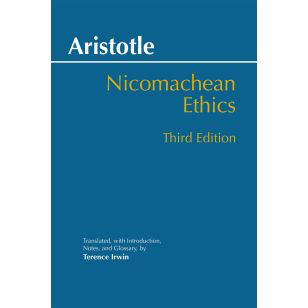
(1) Aristotle, Nicomachean Ethics. It’s so hard to pin down one book of Aristotle’s that would take readers into my philosophical world, but this one will have to do. Along with two other Aristotelian ethical treatises – the Eudemian Ethics (three books of which overlap with the Nicomachean Ethics ) and the Magna Moralia (whose authorship remains disputed) – the Nicomachean Ethics explores the nature of the human good. I’ve been reading this book for decades now, and it’s never failed to interest me. A colleague of mine once teased me for always seeming to assign some part of the Nicomachean Ethics in every course I taught. I suppose he had a point. So, I assigned selections from the Eudemian Ethics for my next course.
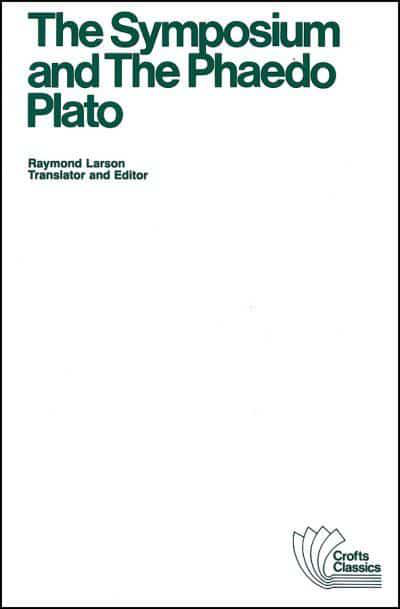
(2) Plato, Symposium and Phaedo . I don’t necessarily use these translations, but this translator-editor had the right idea to produce an edition of these two dialogues in one volume. Both are beautiful and moving, and both explore the immortality of the soul, though in different ways. The Symposium explores this theme in relation to erotic love. Plato’s Socrates, speaking in the voice of a priestess named Diotima, suggests that such love helps us and other mortal beings to participate in the divine, as far as we can, even if we are not unqualifiedly immortal. In the Symposium , then, as I’ve suggested, Socrates introduces themes that Aristotle takes up later. In the Phaedo , Socrates spends his final day philosophizing with friends about why the philosopher may reasonably face death with equanimity. While Socrates’ friends have a strong commitment to the view that the soul is unqualifiedly immortal, and while Socrates is happy to explore various arguments for the soul’s immortality, I believe that Socrates ultimately remains committed on his final day to the outlook that he articulates in the voice of Diotima in the Symposium . I’m currently writing a book that develops this interpretation.
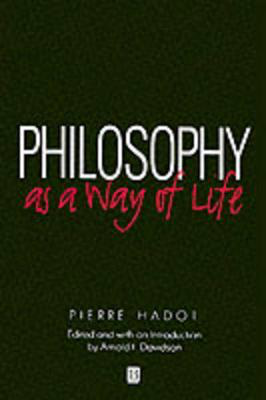
(3) Pierre Hadot, Philosophy as a Way of Life .I first read Hadot in the 1990s, when I was working in publishing and thinking hard about the nature and value of philosophy. This collection of essays by Hadot opened my eyes to aspects of ancient philosophy that I hadn’t noticed before. Hadot argues that ancient Greco-Roman philosophies are not simply bodies of theoretical discourse that can be studied, but whole ways of life that one can lead. Hadot’s work shows that to be a philosopher isn’t necessarily to be an academic philosopher teaching in a philosophy department. Still, it nevertheless encouraged me finally to pursue graduate study, and it’s a book to which I often refer.
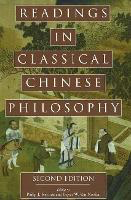
(4) Philip J. Ivanhoe and Bryan W. Van Norden (eds.), Readings in Classical Chinese Philosophy (Second Edition) This collection, which I’ve taught for many years in the Common Curriculum at Yale-NUS College in Singapore, includes selections from Confucius, Mozi, Mengzi, Zhuangzi, Xunzi, among others. These figures represent and defend various sometimes opposed philosophical ways of living, and their writings now inform how I think about philosophical questions generally and in relation to the ancient Greek figures on whom I principally focus. I find myself most sympathetic to the early Confucians, who present views of human nature, the human good, and self-cultivation that invite comparison with (even when they sharply differ from) Plato’s and Aristotle’s. I’ve been exploring some of these comparisons in articles I’ve published during the last decade. Yet Zhuangzi is always lovely to read and be provoked by. And for someone new to Chinese philosophy, Mozi is a fine place to get started.
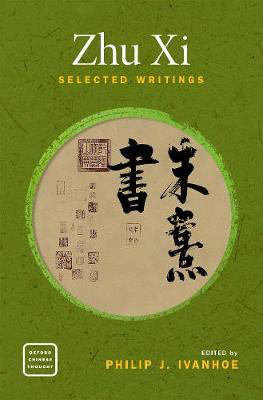
(5) Philip J. Ivanhoe (ed.), Zhu Xi: Selected Writings. Zhu Xi is a Song Confucian scholar and philosopher whose commentaries on the Confucian classics were considered authoritative for centuries in China. If you were taking the civil service exams, you had to know Zhu Xi by heart. Zhu Xi reinterprets early Confucian views on virtue and the good life within a systematic perspective that analyzes the world in terms of pattern ( li ) and vital energy ( qi ). Zhu Xi’s focus on the importance of investigating things ( gewu ) invites comparison with Aristotelian views on contemplation. Zhu Xi also has fascinating things to say about the role of reading classic texts in a good life, and how, precisely, one should read books best to benefit from them personally.

ABOUT THE INTERVIEWER
Richard Marshall is biding his time.
Buy his second book here or his first book here to keep him biding!
End Time series: the themes
Huw Price's Flickering Shadows series.
Steven DeLay's Finding meaning series
Josef Mitterer's The Beyond of Philosophy serialised
NEW: Art from 3:16am Exhibition - details here